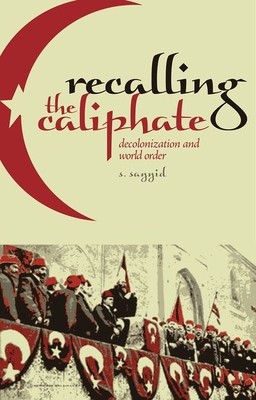
- We will send in 10–14 business days.
- Author: S Sayyid
- Publisher: Hurst & Co.
- ISBN-10: 1787387259
- ISBN-13: 9781787387256
- Format: 14 x 21.4 x 2.2 cm, minkšti viršeliai
- Language: English
- SAVE -10% with code: EXTRA
Reviews
Description
As late as the last quarter of the twentieth century, there were expectations that Islam's political and cultural influence would dissipate as the advance of westernization brought modernisation and secularisation in its wake. Not only has Islam failed to follow the trajectory pursued by variants of Christianity, namely confinement to the private sphere and depoliticisation, but it has also forcefully re-asserted itself as mobilizations in its name challenge the global order in a series of geopolitical, cultural and philosophical struggles. The continuing (if not growing) relevance of Islam suggests that global history cannot simply be presented as a scaled up version of that of the West. Quests for Muslim autonomy present themselves in several forms -- local and global, extremist and moderate, conservative and revisionist -- in the light of which the recycling of conventional narratives about Islam becomes increasingly problematic. Not only are these accounts inadequate for
understanding Muslim experiences, but by relying on them many Western governments pursue policies that are counter-productive and ultimately hazardous for Muslims and non-Muslims alike.
EXTRA 10 % discount with code: EXTRA
The promotion ends in 21d.12:09:12
The discount code is valid when purchasing from 10 €. Discounts do not stack.
- Author: S Sayyid
- Publisher: Hurst & Co.
- ISBN-10: 1787387259
- ISBN-13: 9781787387256
- Format: 14 x 21.4 x 2.2 cm, minkšti viršeliai
- Language: English English
As late as the last quarter of the twentieth century, there were expectations that Islam's political and cultural influence would dissipate as the advance of westernization brought modernisation and secularisation in its wake. Not only has Islam failed to follow the trajectory pursued by variants of Christianity, namely confinement to the private sphere and depoliticisation, but it has also forcefully re-asserted itself as mobilizations in its name challenge the global order in a series of geopolitical, cultural and philosophical struggles. The continuing (if not growing) relevance of Islam suggests that global history cannot simply be presented as a scaled up version of that of the West. Quests for Muslim autonomy present themselves in several forms -- local and global, extremist and moderate, conservative and revisionist -- in the light of which the recycling of conventional narratives about Islam becomes increasingly problematic. Not only are these accounts inadequate for
understanding Muslim experiences, but by relying on them many Western governments pursue policies that are counter-productive and ultimately hazardous for Muslims and non-Muslims alike.


Reviews